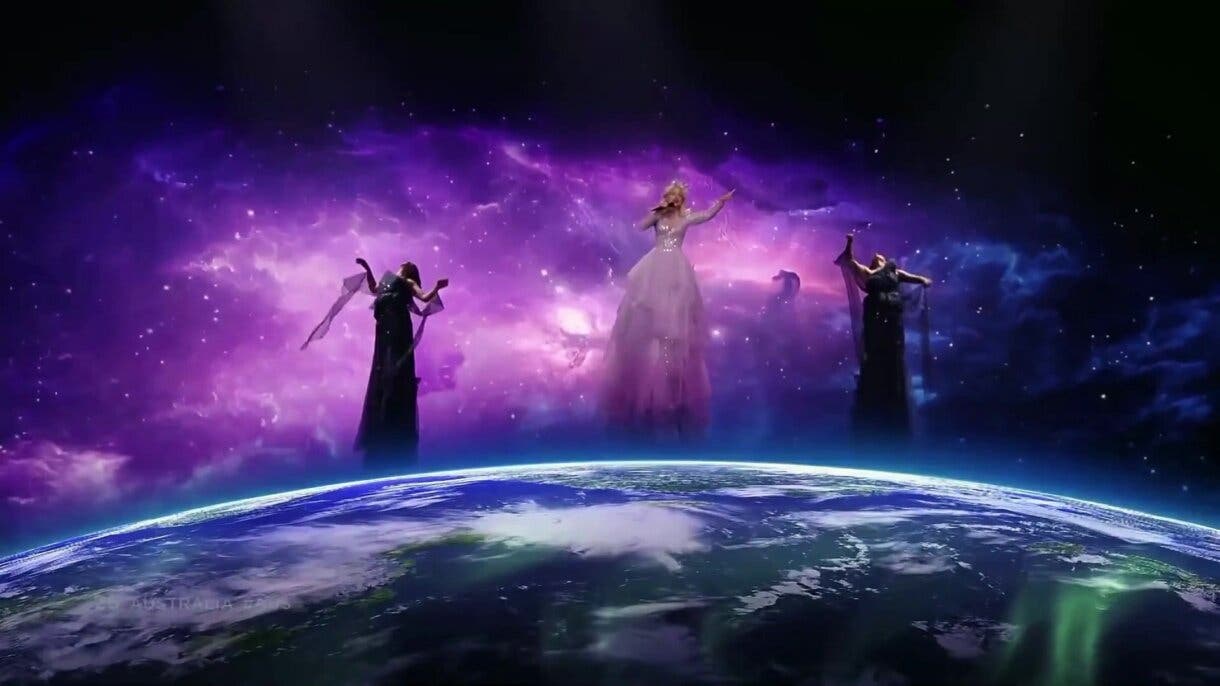If you watch Eurovision as a family every year, someone has surely asked you in the middle of the gala… Why does Australia participate in Eurovision if it is not part of Europe? In addition, the ocean continent is thousands and thousands of kilometers from our land… Did you pay to participate in the Festival? Is there some sort of culture related to the Eurovision Song Contest? Or did the stars just align?
I will talk about it in the next lines, because Australia’s Eurovision origin is interesting to say the least. Of course, let it be clear that thanks to the arrival of this country, we had performances as iconic as that of Dami Im and his Sound of Silence, or Kate Miller and her surprising Zero Gravity.
The origin of Australia in Eurovision
Although Australia made its Eurovision debut in 2015, its origin dates back to 2014, when the Oceanian country participated in Eurovision symbolically and without being part of the competition. February 10, 2015confirmed the European Broadcasting Union through a press release Australia’s debut at Eurovision 2015, but exceptionally and coinciding with the Festival’s 60th anniversary. Why? Because 2.7 million viewers watch Eurovision each year on average from Australiaa very high figure for a country of only 26 million inhabitants.
Given Australia’s warm welcome in 2015, at the end of November of the same year, the EBU confirmed the country’s return to Eurovision. For the moment, without ensuring their permanent participation in the Festival and unlike having to go through the semi-finals to clinch a place in the final.
List of Australian Eurovision appearances
- 2014 : Jessica Mauboy – “Sea of Flags” – Symbolic participation.
- 2015 : Guy Sebastian – “Tonight Again” – 5th place and 196 points (Automatic Finalist).
- 2016: Dami Im – “The Sound of Silence” – 2nd place and 511 points.
- 2017: Isaiah Firebrace – “Don’t Come Easy” – 9th place and 173 points.
- 2018: Jessica Mauboy – “We Got Love” – 20th place and 99 points.
- 2019: Kate Miller-Heidke – “Zero Gravity” – 9th place and 284 points.
- 2020: Montaigne – “Technicolor” – Party cancelled.
- 2021: Montaigne – “Tecnicolor” – Remained in the semi-finals.
- 2022: Sheldon Riley – “Not the Same” – 15th place and 125 points.
- 2023: Traveling – “Promise”.

What happens if Australia wins Eurovision?
The rule is clear: as Australia cannot host Eurovision due to the time change, the country would choose any broadcaster from EBU countries to act as host. Actually, In 2020, an agreement was signed for Iceland to host Eurovision in the event of Australia’s victory, an agreement still in force for the moment..
Voyager, Australia’s representatives at Eurovision 2023
In 2023, the band of oscillate electronic Traveler will be responsible for representing Australia at Eurovision. They’ll do it with the song”Promise“, a real great song that can surprise in terms of staging.
The two semi-finals of Eurovision 2023 will be broadcast on RTVE on Tuesday 9 (Both) and Thursday, May 11 (1), while the final is to be seen on Saturday May 13 from 9 p.m. on La 1 on RTVE.
